Our speaker lineup includes leading data scientists, software engineers and machine learning researchers from international companies and both domestic and foreign universities who apply Deep Learning to real-world problems.
Alphabetical list of speakers:
Alfredo Canziani
NYU Courant Institute of Mathematical Sciences, USA

Alfredo Canziani is a Post-Doctoral Deep Learning Research Scientist and Lecturer at NYU Courant Institute of Mathematical Sciences, under the supervision of professors KyungHyun Cho and Yann LeCun. His research mainly focusses on Machine Learning for Autonomous Driving. He has been exploring deep policy networks actions uncertainty estimation and failure detection, and long term planning based on latent forward models, which nicely deal with the stochasticity and multimodality of the surrounding environment. Alfredo obtained both his Bachelor (2009) and Master (2011) degrees in EEng cum laude at Trieste University, his MSc (2012) at Cranfield University, and his PhD (2017) at Purdue University. In his spare time, Alfredo is a professional musician, dancer, and cook, and keeps expanding his free online video course on Deep Learning and Torch.
Krzysztof Geras
NYU School of Medicine, USA
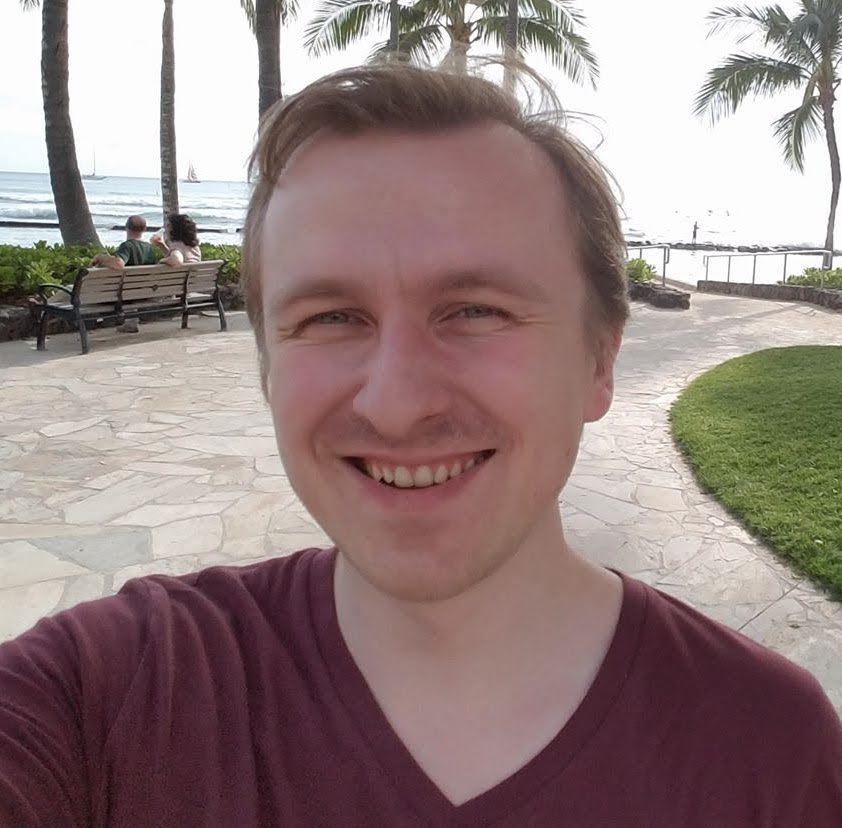
Krzysztof is an assistant professor at NYU School of Medicine and an affiliated faculty at NYU Center for Data Science. His main interests are in unsupervised learning with neural networks, model compression, transfer learning, evaluation of machine learning models and applications of these techniques to medical imaging. He previously did a postdoc at NYU with Kyunghyun Cho, a PhD at the University of Edinburgh with Charles Sutton and an MSc as a visiting student at the University of Edinburgh with Amos Storkey. His BSc is from the University of Warsaw. He also did industrial internships in Microsoft Research (Redmond, working with Rich Caruana and Abdel-rahman Mohamed), Amazon (Berlin, Ralf Herbrich’s group), Microsoft (Bellevue) and J.P. Morgan (London).
Xavier Giró
Universitat Politècnica de Catalunya, Spain
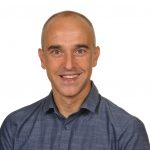
Xavier Giro-i-Nieto is an associate professor at the Universitat Politecnica de Catalunya (UPC) in Barcelona and visiting researcher at Barcelona Supercomputing Center (BSC). His obtained his doctoral degree from UPC in 2012 under the supervision of Prof. Ferran Marques (UPC) and Prof. Shih-Fu Chang (Columbia University). His research interests focus on deep learning applied to multimedia and reinforcement learning.
Home page: https://imatge.upc.edu/web/people/xavier-giro
Alexandr Kalinin
Shenzhen Research Institute of Big Data, China
University of Michigan, USA

Dr. Alexandr Kalinin is a PostDoctoral Research Fellow jointly at the University of Michigan and the Chinese University of Hong Kong, Shenzhen. He received his PhD in Bioinformatics at the University of Michigan in 2018. His PhD thesis focused on applications of statistical modeling, machine learning, and visual analytics to analyze morphological changes of cellular structures from 3D microscopic images. He holds BSc and MSc in Applied Math and Informatics from Novosibirsk State Technical University, Russia. In 2012-2013 Alexandr was a Fulbright Visiting Graduate Researcher at the University of California, Los Angeles, where he was designing and developing online statistical tools for interactive visual analytics and scientific data visualization. His current research is broadly focused on applications of machine learning and deep learning to the analysis of biomedical imaging data.
Lukasz Kidzinski
Stanford University, USA
Saliency.ai, USA
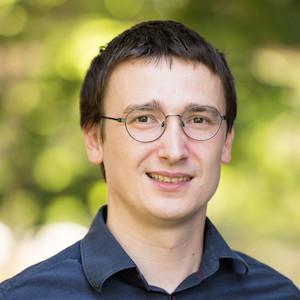
Łukasz Kidziński is an AI researcher and entrepreneur. His most notable scientific work includes: algorithms for detecting neurological disorders from videos of patients, a machine learning library to analyze human movement using artificial intelligence, as well as statistical tools for functional data. He received academic support from National Science Foundation (Switzerland), National Institute of Health (USA), PASCAL (Germany), AWS, Google Cloud, and other institutions.
He turns academic ideas into commercial products. Deepart.io is the original deployment of the most recognizable deep learning algorithm Neural Style Transfer. Łukasz co-founded the company together with the authors of the algorithm. His recent work on predicting car accident risk from Google Street View images of houses was recognized globally by the media and became a basis for an insurtech AI startup. Most recently, his recent work in AI for healthcare gave rise to Saliency.ai — a medical computer vision platform for streamlining workflows in clinical research.
Homepage: https://kidzinski.com/
Martin Svik
Chief Technology Officer for Central & Eastern Europe, IBM
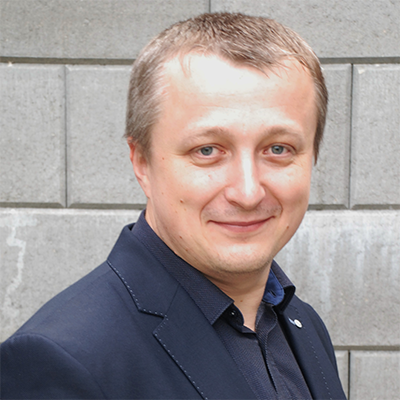
Martin is the Chief Technology Officer for Central & Eastern Europe. In his role he drives couple of growth initiatives Cloud, Data&AI and Blockchain. Martin is as well responsible for bringing innovation to clients.
Over his 12 year career at IBM, Martin has held various positions. Martin was driving Enterprise Content Management client engagements and leading Analytics Platform Technical Team in the past. Martin founded and grew the IBM Watson iLAB based in Prague into a world class rapid prototyping team to provide innovation demonstrations to our clients. In parallel, for the past 4 years, Martin has been an essential member of the IBM WW strategy team , reporting to IBM’s Chief Innovation Officer where he drove innovation projects with IBM’s WW top clients.
Martin has MSc. in Computer Science focused on Visualisation and PhD. (CTU, Prague) in Economy focused on ROI of IT projects as well as MBA (Warwick, UK) where he focused on IBM Entrepreneurship.
Arushi Raghuvanshi
Cisco, USA

Arushi Raghuvanshi is a Senior Machine Learning Engineer at Cisco through the acquisition of MindMeld, where she builds production level conversational interfaces. She has developed instrumental components of the core Natural Language Processing platform, drives the effort on active learning to improve models in production, and is leading new initiatives such as speaker identification. Prior to MindMeld, Arushi earned her Master’s degree in Computer Science with an Artificial Intelligence specialization from Stanford University. She also holds a Bachelor’s degree from Stanford in Computer Science with a secondary degree in Electrical Engineering. Her prior industry experience includes time working at Microsoft, Intel, Jaunt VR, and founding a startup backed by Pear Ventures and Lightspeed Ventures. Arushi has publications in leading conferences including EMNLP, IEEE WCCI, and IEEE ISMVL.
Fabrizio Sebastiani
The National Research Council, Italy
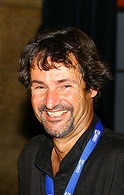
Fabrizio is a Director of Research, and leader of the Human Language Technologies group, in the Networked Multimedia Information Access Laboratory at the Institute for the Science and Technologies of Information of the Italian National Council of Research. The research interests of the group include text classification, information extraction, quantification, sentiment classification, cross-lingual and cross-domain text classification, technology-assisted review, authorship analysis, and their applications.
Home page: http://nmis.isti.cnr.it/sebastiani/
Google Scholar: https://scholar.google.com/citations?user=WZBcZV4AAAAJ&hl=en
Adam Gabryś
Amazon, Poland
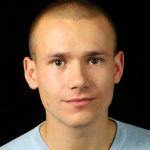
Adam Gabryś is a Software Development Engineer working on quality and expressiveness improvements to Amazon Neural Text-To-Speech voices. He graduated in 2017 from AGH University of Science and Technology in Cracow with a Bachelor of Applied Computer Science. During his time at the University, he focused on Machine Learning for time series prediction and high dimensional data visualization. Since then Adam has been working in Amazon Gdansk office. He has experience in Software Development, Digital Signal Processing, Deep Learning, and Data Science. To reboot himself, Adam likes going bouldering, rock climbing, and hiking.
Grzegorz Karch
NVIDIA, Poland
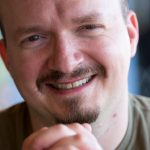
Grzegorz Karch is a senior CUDA Algorithms engineer in the Deep Learning Software group at NVIDIA, focusing on generative models for speech synthesis and on inference workflows. Grzegorz holds a PhD in computer science from the University of Stuttgart in Germany, where his research concentrated on scientific visualization.
Maciej Kraszewski
Zeiss, Poland
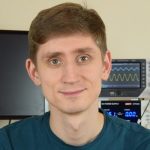
Maciej Kraszewski specializes in image processing and computer vision systems. Currently he is R&D manager in OptiNav, a Carl Zeiss company focused on developing new machine vision solutions for industrial quality inspection. He is also an assistant professor of computer science in Pomeranian Academy in Słupsk. He received a PhD degree in electrical engineering at Gdańsk University of Technology for his research related to optical coherence tomography (OCT). He is an active member of SPIE (Society of Photooptical Instruments Engineering) and PDMA (Product Development and Management Association).
Krzysztof Kwaśniewski,
Google, Poland
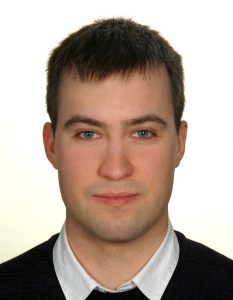
Software engineer at Google, since 2017 has been developing both the internal and external Google Clouds. Presently focuses on robust, easily configurable and auto-renewed managed SSL certificates for Google Cloud Platform. He has been driving Managed Certificates for Google Kubernetes Engine (https://github.com/GoogleCloudPlatform/gke-managed-certs).
Previously Krzysztof was developing a business and market intelligence platform, IHS Connect, at IHS Markit. Thrilled to give a talk at Politechnika Gdańska, his Alma Mater.
Maciej Rygielski
AI Factory, Poland
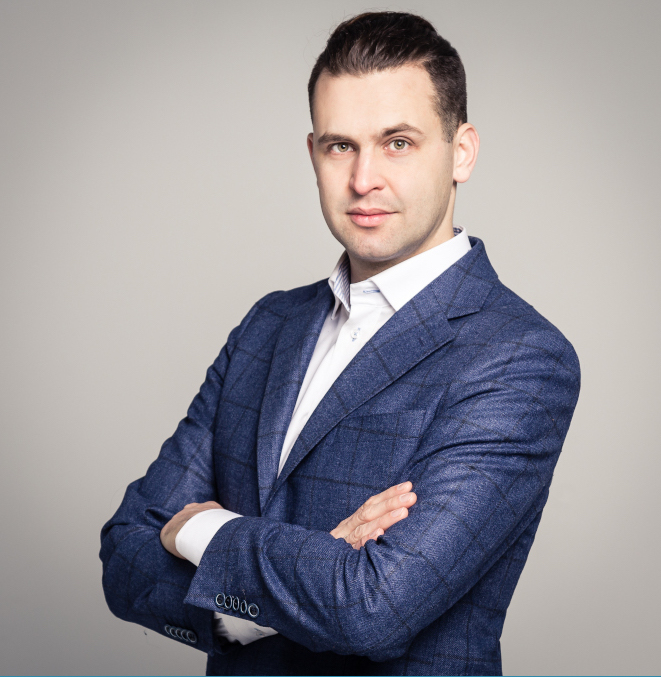
Managing director in AI Factory who loves to do cool things on the edge between two worlds with totally different dynamics: business and technology. In practice it means helping industrial and retail companies to automate mundane and boring tasks, which humans do not like to do by using Image Recognition technologies. One of his latest projects are – Automatic Shop Shelf Audit – counting products exposed on shelfs in shops – AI Cube – an amazing device, which helps to reduce fraud in pharmaceutical industry. He is also closely cooperating with team delivering a very interesting medical project https://brainscan.ai/
Links
https://brainscan.ai/
https://ai-factory.pl/
Wojciech Samek
Fraunhofer Heinrich Hertz Institute, Germany
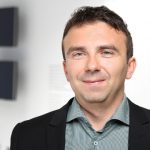
Wojciech Samek has founded and is heading the Machine Learning Group at Fraunhofer Heinrich Hertz Institute since 2014. He studied computer science at Humboldt University of Berlin, Heriot-Watt University and University of Edinburgh from 2004 to 2010 and received the Dr. rer. nat. degree with distinction (summa cum laude) from the Technical University of Berlin in 2014. In 2009 he was visiting researcher at NASA Ames Research Center, Mountain View, CA, and in 2012 and 2013 he had several short-term research stays at ATR International, Kyoto, Japan. He was awarded scholarships from the European Union’s Erasmus Mundus programme, the Studienstiftung des deutschen Volkes and the DFG Research Training Group GRK 1589/1. He is PI at the Berlin Institute for the Foundation of Learning and Data (BIFOLD), member of the European Lab for Learning and Intelligent Systems (ELLIS) and associated faculty at the DFG graduate school BIOQIC. Furthermore, he is an editorial board member of Digital Signal Processing, PLOS ONE and IEEE TNNLS and an elected member of the IEEE MLSP Technical Committee. He has organized special sessions, workshops and tutorials at top-tier machine learning conferences (NIPS, ICML, CVPR, ICASSP, MICCAI), has received multiple best paper awards, and has authored more than 100 journal and conference papers, predominantly in the areas deep learning, interpretable machine learning, neural network compression and federated learning.
Michał Szutenberg
Intel, Habana Labs, Poland
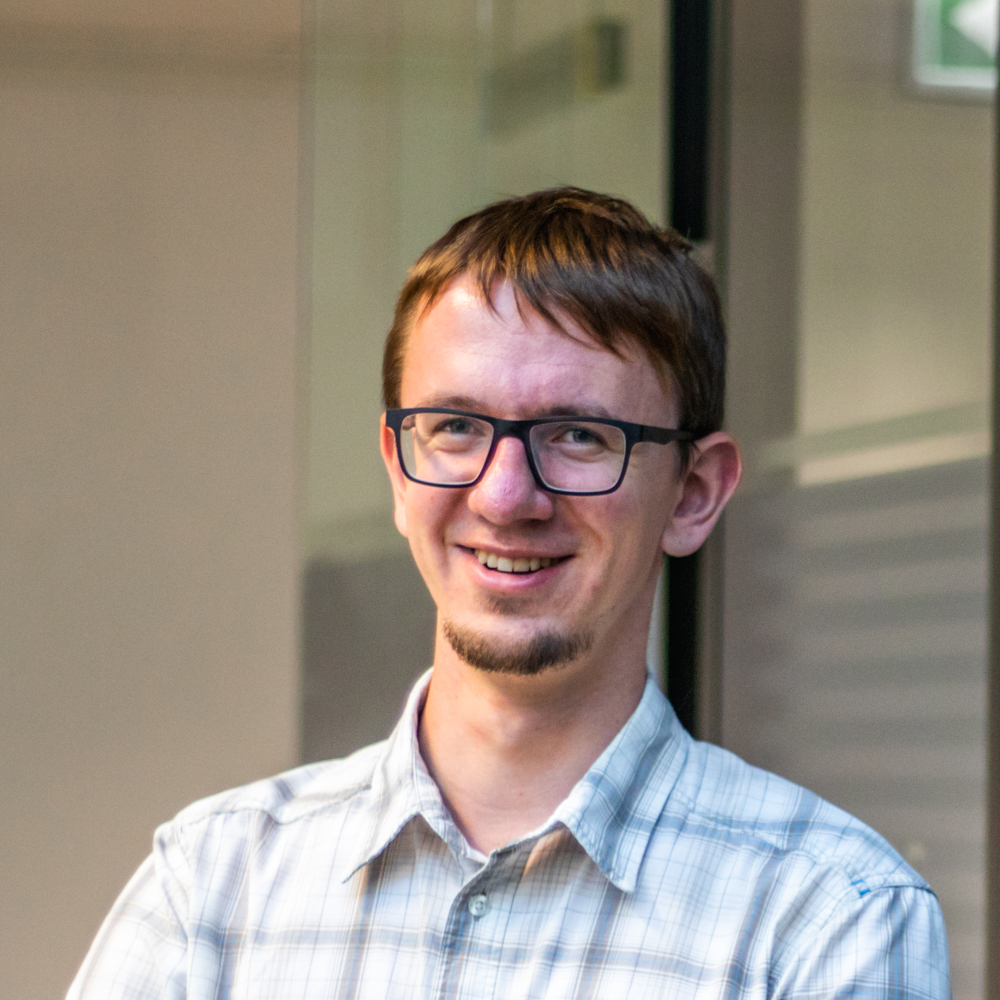
Michał obtained M.Sc. in Embedded Systems at Eindhoven University of Technology and M.Sc. in ICT Innovation at KTH Royal Institute of Technology. In the Master Thesis, he proposed a hybrid approach for lane detection and tracking for self-driving vehicles consisting of a lightweight convolutional neural network and a model-based approach. Currently, he works at Habana Labs, an Intel company. He focuses on enabling deep learning models on AI processors and optimizing their performance.
Mateusz Utracki
LPP, Poland

Mateusz is a Data Engineer working on resilient and scalable data pipelines. Able to integrate state-of-art Big Data and AI technologies into the overall architecture. Enjoying journey with LPP through the Cloud Transformation. Previously worked at Boeing ensuring high quality GIS data. In free time he reads fairy tales to his 4-month-old daughter or play with his Golden Retriever, both of which involve a lot of drooling.
Alicja Kwasniewska,
Intel, USA
Gdansk University of Technology, Poland

Alicja graduated with distinction from Gdansk University of Technology, receiving Bachelor’s and Master’s Degree in Biomedical Engineering – Computer Science in Medicine. Her Master Thesis was conducted in cooperation with Norwegian University of Science and Technology in the area of signal and image processing, where she developed a platform for contactless monitoring of elderly people. This work has been frequently awarded in different contests, e.g. best diploma in the area of bioinformatics. As a Ph.D. candidate at Gdansk University of Technology, she is conducting the research in image processing using machine learning algorithms for remote healthcare. She also conducts a joint research in the field of neural networks with University of Texas, San Antonio. She has 8 years professional experience in computer vision gained while developing software for processing images from various sources (e.g. webcams, medical data, security cameras, etc.). For the past 3 years, she has been working on deep learning algorithms for servers monitoring, autonomous cars, smart home, and healthcare at Intel Corporation.
Jacek Ruminski
Gdansk University of Technology, Poland

Prof. Jacek Ruminski (Ph.D. in Computer Science, habilitation in Biocybernetics and Biomedical Engineering) is a head of Biomedical Engineering Department at GUT. He has spent about 2 years working on projects at different European institutions. He was a coordinator or an investigator in about 20 projects receiving a number of awards, including for best papers, practical innovations (7 medals and awards) and also the Andronicos G. Kantsios Award. Prof. Ruminski is the author of about 210 papers, and several patent applications and patents. Recently he was a main coordinator of the European eGlasses project focused on HCI using smartglasses. His research is focused on application of machine learning in healthcare.
Maciej Szankin
Intel, USA

Maciej received M.Sc. in Computer Science in 2016 at the Department of Computer Architecture, Gdansk University of Technology. In his Master Thesis, he proposed methods for running machine learning algorithms in the distributed environment. His work focuses on leveraging hardware accelerators for improving deep learning workloads in constrained and mission-critical environments. Many of his solutions have been published in journals and presented during IEEE conferences, and has received best paper award and best young professional paper award.
















